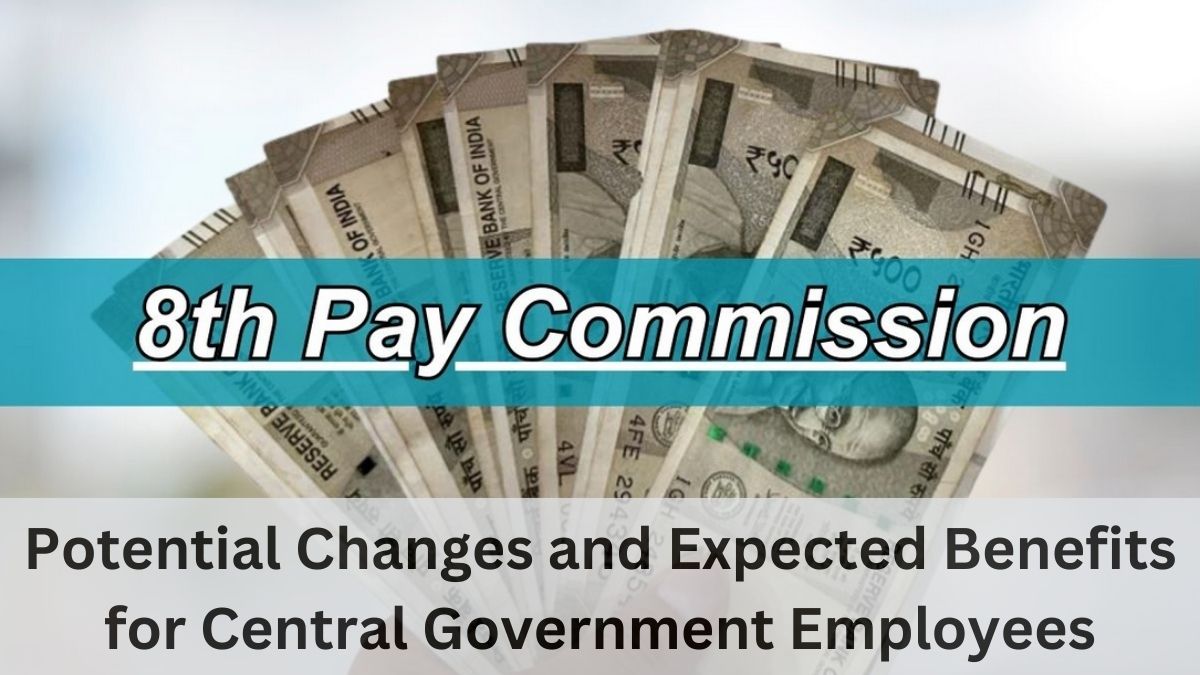The 8th Pay Commission has been a major topic of discussion among central government employees, with expectations of salary hikes, career progression improvements, and enhanced benefits. One of the key demands put forward is a minimum of five career promotions instead of the current three under the Modified Assured Career Progression (MACP) scheme. This article explores the potential impact of the 8th Pay Commission, expected salary revisions, key proposals, and frequently asked questions regarding the upcoming changes.

Understanding the MACP Scheme and Its Limitations
The Modified Assured Career Progression (MACP) scheme was introduced to ensure that central government employees receive at least three career promotions during their tenure. The promotions under MACP are currently provided at 10, 20, and 30 years of service.
However, many employee unions and representatives argue that three promotions over a 30-year period are insufficient for ensuring professional growth and financial stability. They have urged the government to revise the structure by introducing a minimum of five promotions throughout the service duration.
The National Council of Joint Consultative Machinery (NC-JCM) has formally recommended this revision, stating:
“To consider the existing anomalies in the MACP scheme and to recommend a minimum of five promotions in service with a well-defined hierarchical structure and career progression.”
If implemented, this could greatly enhance job satisfaction, improve employee motivation, and ensure better financial growth for government personnel.
8th Pay Commission: Current Status and Developments
The Union Cabinet approved the formation of the 8th Pay Commission in January 2025. However, the government is yet to finalize its members and appoint a Chairman.
To ensure fair recommendations, the central government has sought suggestions for the Terms of Reference (ToR) from various employee unions and organizations. The staff side of NC-JCM has actively participated in this consultation, pressing for improved career progression, salary restructuring, and enhanced benefits.
Some of the major expectations include:
✔ A significant pay hike with a revised fitment factor
✔ Higher minimum salary and pension revisions
✔ An improved promotional framework under MACP
✔ Better retirement and medical benefits
Expected Pay Hike Under the 8th Pay Commission
One of the most anticipated aspects of the 8th Pay Commission is the salary revision. Experts predict that the fitment factor—which determines the revised basic pay—could range between 1.92 and 2.86. This would result in a salary hike of approximately 92% to 186%.
Below is a table outlining the potential basic salary and pension revisions based on different fitment factors:
| Fitment Factor | Minimum Basic Salary (₹) | Minimum Basic Pension (₹) |
|---|---|---|
| 1.92 | 34,560 | 17,280 |
| 2.00 | 36,000 | 18,000 |
| 2.08 | 37,440 | 18,720 |
| 2.86 | 51,480 | 25,740 |
If the highest fitment factor of 2.86 is implemented, employees may see one of the biggest pay hikes in recent history.
Key Proposals in the 8th Pay Commission Terms of Reference (ToR)
The Terms of Reference (ToR) for the 8th Pay Commission outline key aspects that the commission will review. Some of the major proposals include:
1. Restructuring the Pay System
- Review and revise the pay structure for all categories of employees
- Merge non-viable pay scales to improve career progression
- Ensure higher starting salaries for new employees
2. Minimum Wage Revision
- Determine a justified minimum wage using the Aykroyd formula
- Consider recommendations from the 15th Indian Labour Conference
3. Dearness Allowance (DA) Merger
- Merge Dearness Allowance (DA) with basic pay and pension
- Provide better financial security for employees and pensioners
4. Retirement Benefits Enhancement
- Improve pension, gratuity, and family pension benefits
- Consider restoring the Defined Pension Scheme (DPS) for employees recruited after January 1, 2004
5. Better Medical Facilities
- Upgrade Central Government Health Scheme (CGHS) facilities
- Ensure cashless and hassle-free medical services for employees and pensioners
6. Education Allowance Improvement
- Enhance the Children’s Education Allowance
- Increase hostel subsidies for children up to the post-graduation level
Frequently Asked Questions
1. When will the 8th Pay Commission be implemented?
The 8th Pay Commission was approved in January 2025, but the implementation timeline will depend on the government’s final decision and recommendations from the commission.
2. How many promotions will central government employees get under the new MACP structure?
The staff side of NC-JCM has proposed increasing the number of promotions from three to five. However, this is subject to government approval.
3. What salary hike can employees expect under the 8th Pay Commission?
Experts estimate a fitment factor of 1.92 to 2.86, leading to a pay hike of 92% to 186%.
4. Will pensioners benefit from the 8th Pay Commission?
Yes, pensioners are expected to receive higher basic pensions, with some proposals suggesting merging Dearness Allowance (DA) with pension for improved financial stability.
5. Will the 8th Pay Commission restore the old pension scheme?
There have been discussions about restoring the Defined Pension Scheme (DPS) for employees recruited after January 1, 2004, but no official confirmation has been made yet.
6. What changes are expected in the Children’s Education Allowance?
The commission may propose an increase in the Children’s Education Allowance and hostel subsidies to support employees’ children through higher education.
The 8th Pay Commission has the potential to bring significant changes to the salaries, career growth, and overall benefits of central government employees. The proposed increase in MACP promotions, salary hikes, and better allowances will greatly impact employees’ financial well-being and job satisfaction. As discussions continue, employees eagerly await official confirmation of these long-awaited reforms.
Click here to know more.
Kishan is a knowledgeable writer specializing in agriculture and the latest government job recruitments, delivering clear and insightful content to inform and empower readers.
